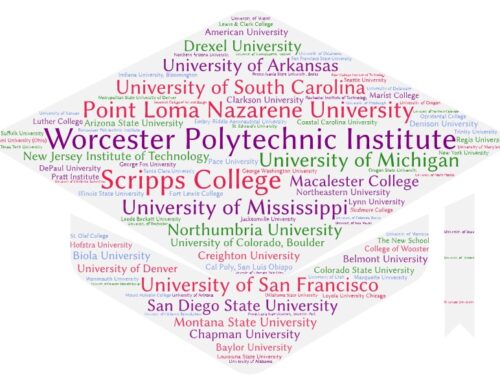$69,717. That was the cost, for the 2016-2017 school year, to attend the most expensive college in the United States: Harvey Mudd College in California. Although Harvey Mudd’s price is the highest, many other private colleges aren’t far behind. According to Business Insider, there are at least 50 colleges that cost nearly $65,000 or more per year. What’s more, these figures only include tuition, fees, and room and board; books, transportation, and personal expenses have not been factored in.
As scary as those numbers are, the reality is that the vast majority of students at private colleges don’t pay the full price. This is the result of a practice known as “tuition discounting.” Money magazine reported that during the 2016-2017 school year, only 12% of freshmen at private colleges paid full price, and the average freshman at these colleges paid only 44% of the sticker price. Perhaps most surprisingly, after accounting for inflation, this year’s college freshmen paid a lower average net price than did students who started college in the fall of 2015.
Although the cost of college continues to rise every year, tuition discounting also is likely to go on for the next several years due to a number of factors, which are described in the aforementioned Money article. And, as explained in an article I wrote last year, scholarships aren’t just offered to students with financial need; many colleges also award merit-based scholarships. In fact, there are 200 colleges that give a scholarship to every freshman!
Statistics like these lend support to what I always tell students and parents about college costs: don’t rule out a school because of its sticker price, as chances are, you won’t pay the full price. I’ve actually worked with students who got so much financial aid at a private college that it was cheaper than some of Colorado’s in-state public schools.
So, before you hit the panic button or run screaming from the room, consider that 88% of this year’s college freshmen received some form of financial aid, and you (or your child) likely will, too.






